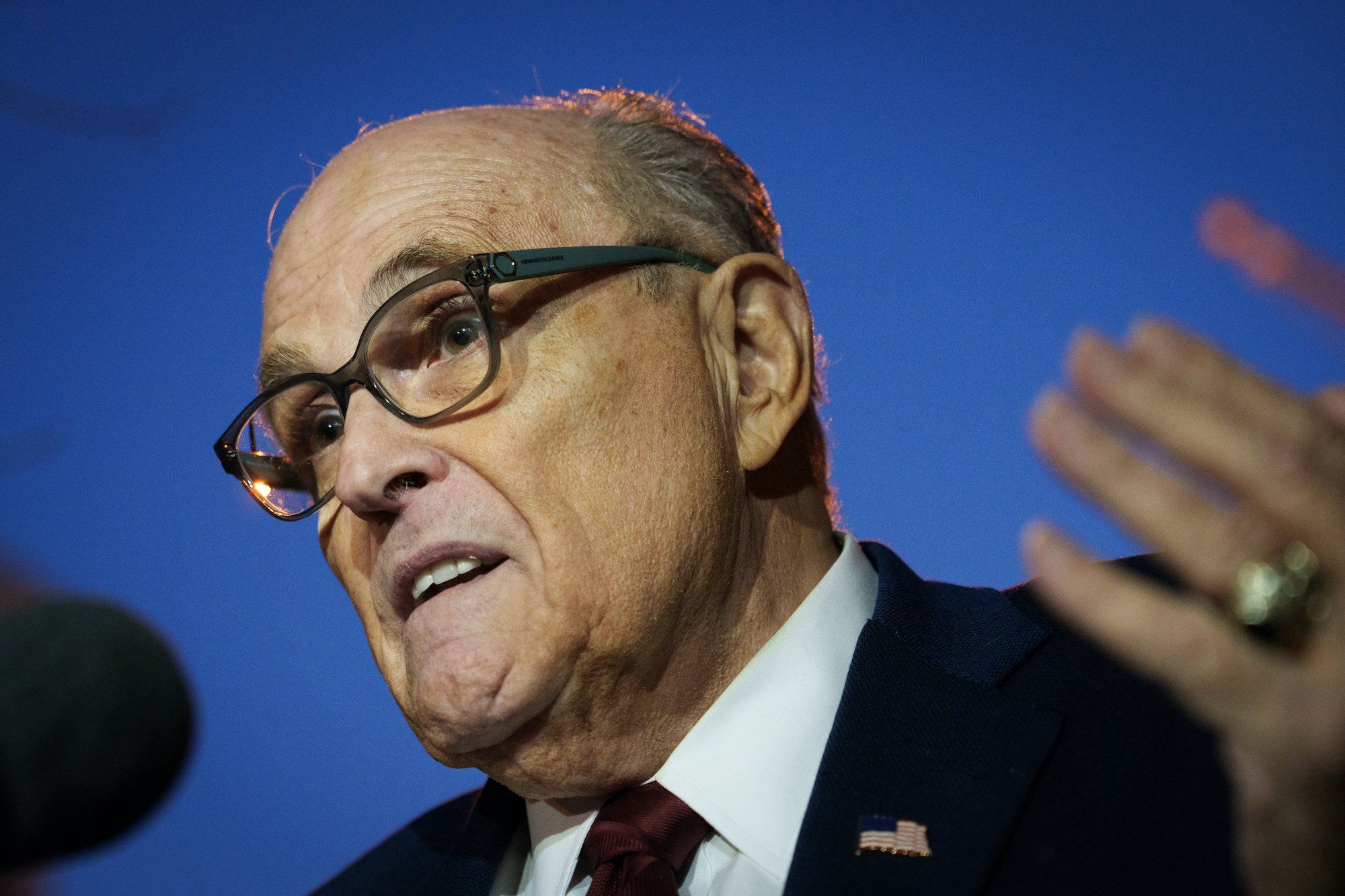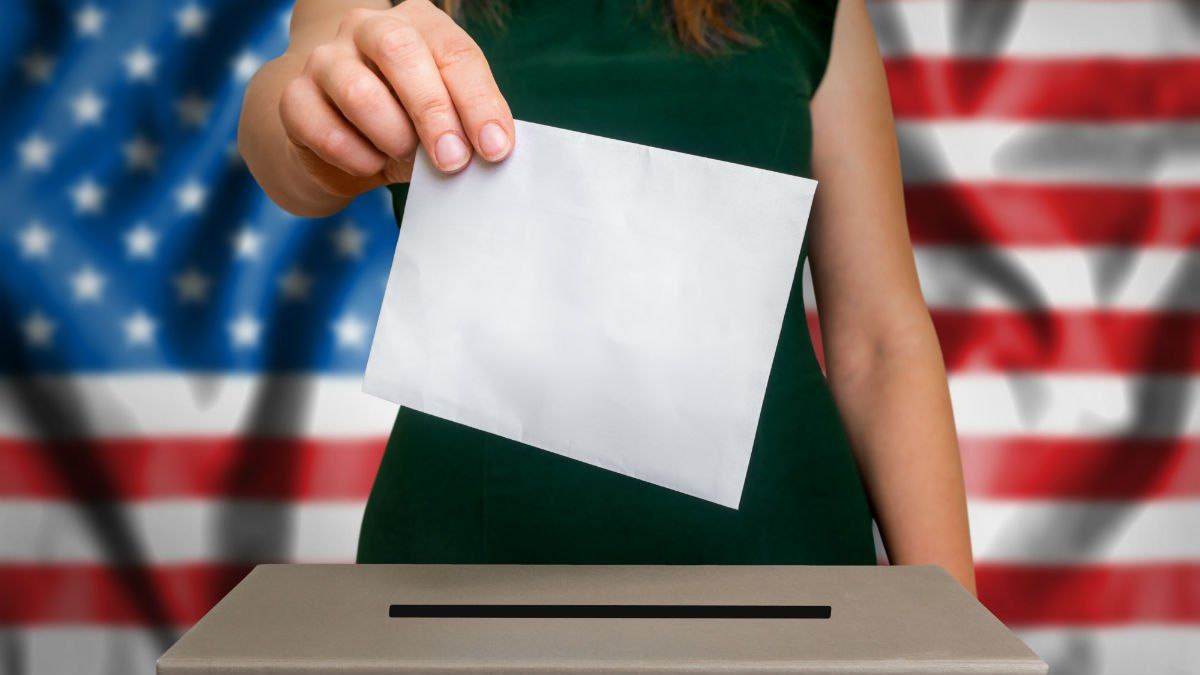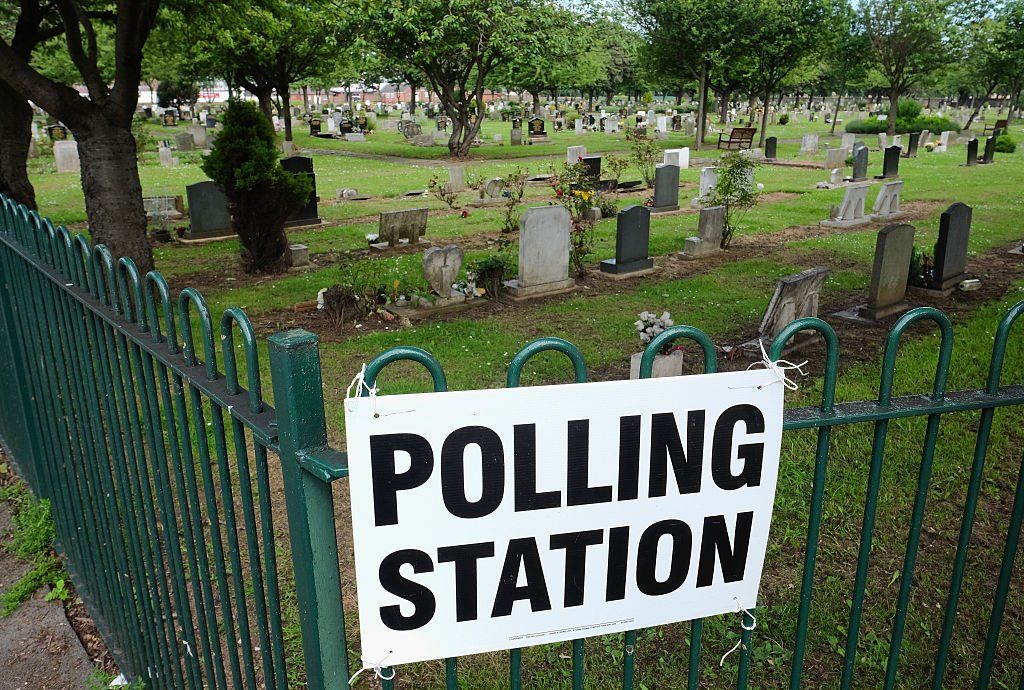Rudy Giuliani ordered to pay $148 million for false 2020 election claims
Rudy Giuliani ordered to pay $148 million to Georgia poll workers The Washington Post
Read MoreConspiracy news & views from all angles, up-to-the-minute and uncensored
Election fraud conspiracies

Rudy Giuliani, the former mayor of New York City, was ordered by a federal jury to pay two Georgia election workers $148 million over a defamation lawsuit related to voter fraud claims.
The jury of eight residents of Washington, D.C., deliberated for about ten hours before reaching a decision Friday afternoon.
Ruby Freeman and her daughter Wandrea ArShaye “Shaye” Moss sued Giuliani, who had represented former President Donald Trump as his personal attorney, and accused them of participating in a fake balloting scheme during the 2020 presidential election in Fulton County.
The jury awarded $16 million to Freeman for compensatory damages for defamation and awarded $17 million to Moss for compensatory damages for defamation. In addition, they awarded $20 million to each for emotional distress and $75 million in punitive damages for both.
Giuliani had previously said he would take the stand in order to testify in his defense, but he changed his mind and never testified.
“We feel like these women have been through enough,” said Giuliani’s attorney on Thursday.
Mike Gottlieb, the attorney for Moss and Freeman, argued in his closing statement that Giuliani had dehumanized the workers in order to push his narrative about the election.
“He thought they were ordinary and expendable. He didn’t see them as human beings,” said Gottlieb. “It’s dangerous for them to be Ruby Freeman or Shaye Moss because of Giuliani and his co-conspirators.”
The women testified about the numerous threats and insults they had received on social media because of the accusations made against them by Giuliani.
Giuliani later equated the damages they were seeking to “the civil equivalent of the death penalty” for the former mayor.
“They’re trying to end Mr. Giuliani,” he said to the jury.
Like Blaze News? Bypass the censors, sign up for our newsletters, and get stories like this direct to your inbox. Sign up here!
Read More
One in five voters who cast mail-in ballots during the 2020 presidential election admit to participating in at least one kind of voter fraud, according to a new poll conducted by Rasmussen Reports and the Heartland Institute.
Specifically, 21% of mail-in voters admitted they filled out a ballot for a friend or family member; 19% of mail-in voters admitted that a friend or family member filled out a ballot on their behalf; 17% of mail-in voters admitted they voted in a state where they were no longer a permanent resident; and 17% of mail-in voters said they signed a ballot for a friend or family member with or without his or her permission.
Each of these instances constitutes voter fraud.
Taking only the first instance, this means that 21% of all mail-in ballots were fraudulent in 2020. It is important to note this number was likely much higher because the survey questions were not mutually exclusive. Though there is certainly some crossover between categories, some voters committed fraud by filling out a ballot for a friend or family member, while an entirely different subset of voters committed fraud by casting mail-in ballots in a state in which they were no longer permanent residents.
The national poll of 1,085 likely voters was conducted between November 30 and December 6, with a margin of error of +/-3 percentage points and a 95% level of confidence.
Using only the most conservative estimate (21%), the number of fraudulent ballots is still astronomical. According to election data, 43% of 2020 voters cast ballots by mail — by far the largest percentage in U.S. history. Twenty-one percent of that 43% mail-in figure yields approximately 9%.
Only 0.80% of all absentee and mail-in ballots were rejected in 2020. Clearly, nearly all fraudulent ballots made it through our country’s gaping sieve of an electoral system.
According to the Cook Political Report, 158,397,726 votes were cast for Joe Biden, Donald Trump, or another candidate in 2020. Taking 9% of this total, that means more than 14 million ballots cast in 2020 were fraudulent. Again, this is just the most conservative estimate — the total number of fraudulent ballots was likely much higher.
Moreover, the survey reveals that fraudulent voting may not have been purely limited to mail-in ballots. Eight percent of all survey respondents — not only those who cast mail-in ballots — admitted that a friend, family member, or organization (such as a political party) offered to pay or reward them for voting.
The survey indicates that the percentages of voter fraud among Republicans, Democrats, and unaligned voters were largely similar. It is vital to note, however, that this does not mean these fraudulent ballots simply canceled each other out.
While the percentages were similar, the overall numbers were not. According to the survey, 38% of Biden voters submitted mail-in ballots, compared to only 23% of Trump voters. As such, Biden received a much larger overall share of likely fraudulent ballots.
The 2020 election was an outlier for mail-in voting, largely due to executive overreach throughout the COVID-19 pandemic. In the lead-up to the November election, several governors declared states of emergency in response to the pandemic and arbitrarily changed their states’ voting laws to allow mass mail-in voting. For example, California mailed unsolicited ballots to all registered voters, while many other states expanded absentee ballot eligibility requirements.
In 2020, several states also allowed ballot harvesting, which allows third-party individuals to collect and submit mail-in ballots on behalf of voters, although evidence shows ballot harvesting is “ripe for voter fraud and abuse.”
All of this occurred despite the fact that the Constitution explicitly designates that only state legislatures have the power to make or change election laws. Under Article I, Section 4, “The Times, Places and Manner of holding Elections for Senators and Representatives, shall be prescribed in each State by the Legislature thereof.”
There are many reasons why mail-in voting is less reliable than in-person voting.
For starters, state voter rolls are notoriously inaccurate. In 2012, the Pew Center on the States analyzed state voter registration rolls and found that “approximately 24 million — one of every eight — voter registrations in the United States are no longer valid or are significantly inaccurate. More than 1.8 million deceased individuals are listed as voters. Approximately 2.75 million people have registrations in more than one state.”
Mail-in ballots are also rejected at an astounding rate.
In New York, which used mail-in ballots during its primary elections in 2020, 21% of ballots were rejected due to errors. In Pennsylvania, the same scenario played out with more than 20% of mail-in ballots rejected due to voter errors.
Even NPR raised concerns about mass mail-in voting in the months before the 2020 general election.
“An extraordinarily high number of ballots — more than 550,000 — have been rejected in this year’s presidential primaries. … That’s far more than the 318,728 ballots rejected in the 2016 general election and has raised alarms about what might happen in November when tens of millions of more voters are expected to cast their ballots by mail, many for the first time,” NPR reported.
In 2012, the New York Times ran an article headlined, “Error and Fraud at Issue as Absentee Voting Rises,” which similarly concluded that “votes cast by mail are less likely to be counted, more likely to be compromised and more likely to be contested than those cast in a voting booth.”
Despite all of these concerns, only 0.80% of all absentee and mail-in ballots were rejected in 2020, according to Ballotpedia. Clearly, nearly all fraudulent ballots made it through our country’s gaping sieve of an electoral system.
Though some people need to vote by mail, the practice should be the exception, not the rule. Considering most states offer early voting — allowing voters to cast ballots in-person weeks before Election Day — there is little excuse for voters who do not show up to a physical polling location. Plus, as this poll indicates, only 2% of voters would choose not to vote if their state banned mail-in voting.
With the 2024 general election less than one year away, it is vital that state officials do everything in their power to shore up the integrity of their states’ voting systems and ensure that voting procedures are as dependable and accurate as possible. Our republic cannot survive in the absence of strong electoral laws that prevent widespread fraud.
Read More
The governmental transparency outfit Judicial Watch appears to have executed a successful pressure campaign to rid select voter lists of multitudes of ineligible voters in the District of Columbia.
Judicial Watch notified election officials in
D.C., California, and Illinois that they had violated the National Voter Registration Act of 1993 “based on their failure to remove inactive voters from their registration rolls.”
While officials in California and Illinois have time left to act before Judicial Watch makes good on its threat of legal action, D.C. has indicated it has already begun taking remedial steps.
The watchdog claimed in a Sept. 22
letter to the Monica Holman Evans, executive of the District of Columbia Board of Elections, that the board was in violation of Section 8 of the NVRA requiring it to “conduct a general program that makes a reasonable effort to remove the names of ineligible voters from the official lists of eligible voters for DC.”
The letter cited D.C. data provided to the U.S. Election Assistance Commission indicating zero voter registrations had been removed from November 2020 to November 2022.
According to the watchdog, EAC data showed the number of inactive registrations in the district amounted to nearly one-quarter of the total number of Washington’s registrations. Moreover, the notice stated “DC’s total registration rate — its total number of registrations divided by the most recent census estimates of its citizen voting-age population — is over 131%.”
Judicial Watch wrote, “In our experience, and as a matter of common sense, there is no possible way that the DC BOE is complying with the NVRA if it remove no registrations pursuant to that provision in a two-year period.”
The watchdog threatened to file a federal lawsuit unless the violations were corrected within 90 days.
Evans evidently blinked,
telling Judicial Watch in a letter last month that the board had taken “several list maintenance actions,” including the removal of 65,544 inactive voters on Oct. 30 who had allegedly voted in neither the 2016 nor 2020 general elections.
Evans further noted that an additional 37,962 “inactive” voters would soon be removed who had not voted in the 2018 general election, responded to address confirmation notices, or participated in the November 2022 general election.
While thousands of inactive voters were moved off the list, 73,522 voters were moved from “active to an inactive status on October 3, 2023 as a result of the 2023 biennial canvass process.”
Judicial Watch president Tom Fitton said in a statement, “Dirty voter rolls increase the potential for voter fraud.”
“As Washington, DC’s, quick cleanup of tens of thousands of names in response to Judicial Watch shows, there are potentially hundreds of thousands of names on the voter rolls that should be removed by California and Illinois,” added Fitton.
Although earlier this year, California saw over 1.2 million ineligible voters
taken off rolls in Los Angeles County, the watchdog suggested that 46 counties in the state, containing over 14 million voters, “reported removing only a handful, or no registrations under the NVRA’s change of address rules, or else failed to report any data at all.”
Illinois similarly appears to have trouble dropping ineligible voters from its lists, with 15 counties indicating zero removals from November 2020 to November 2022, according to EAC reports.
Judicial Watch also
noted in its letter to Bernadette Matthews, executive director of the Illinois State Board of Elections, that “15 Illinois jurisdictions have more voter registrations than citizens of voting age.”
It appears this is a problem for other states as well.
The Republican National Committee demanded Friday that Michigan Secretary of State Jocelyn Benson clean up her state’s voter rolls, citing a recent analysis showing 55 of Michigan’s 83 counties have more registered voters than adults 18 or older,
reported the Detroit Free Press.
“More than 50 Michigan counties have a 100% or higher rate of voter registration,” said RNC Chairwoman Ronna McDaniel.
“This is mathematically impossible and means that ineligible voters are on the rolls ahead of the upcoming 2024 election,” continued the chairwoman. “The RNC is demanding that Michigan ensure only eligible voters can vote and will take legal action to ensure that outcome if necessary.”
Like Blaze News? Bypass the censors, sign up for our newsletters, and get stories like this direct to your inbox. Sign up here!
Read More